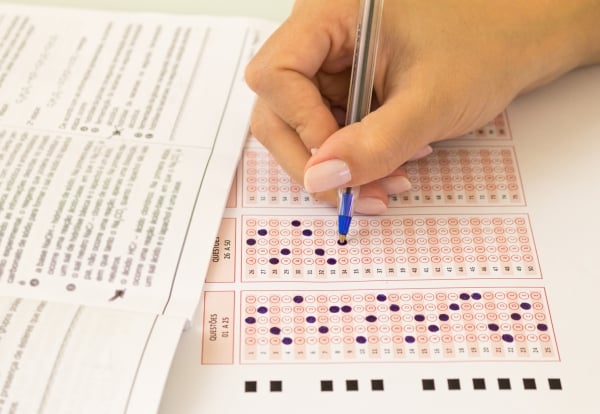Studies show a link between mental health and academics
Forty-two percent of students surveyed by Kahoot! they say they have skipped the test in the past.
Gabriel Ramos/iStock/Getty Images Plus
Almost 90 percent of all students say their mental health interferes with their ability to study or complete assignments at least sometimes, with one in 10 saying these interruptions happen every day each, according to a new study by Kahoot!, a digital game-based learning platform.
The report, launched by the Norwegian company Study Habits Snapshot, includes responses from more than 1,000 current students at private, public and for-profit institutions in the US ), technological barriers and other people (both 38 percent), they feel like they don’t have enough time (34 percent), and not interested in the information (33 percent).
“We wanted to conduct this study to better understand the changing nature of teaching and learning for students, especially at a time when many students are facing challenges such as mental health issues, depression , tests and concerns – and students report more problems with students’ non-attendance and participation,” Kahoot! vice president Sean D’Arcy said in a statement Middle Upper Ed. “It is a complex and dynamic issue, especially given the increasing pressures on students as they balance the demanding demands of their academic and personal lives with multiple domains (e.g. work, personal, academic, society).”
Experts have long understood that students’ mental health problems can also negatively affect their academic performance, with severe mental health problems leading students to drop grades or drop out of school.
To support these students, colleges have tried to provide resources and infrastructure, and, in recent years, that effort has been extended to educational grants. The mental health counselors at Seattle Central College, for example, are also trained to provide clinical and educational counseling to students—all in one support center.
Just as mental health can have a negative impact on academics, academic work can negatively affect students’ attitudes.
Other students on Kahoot! The survey reported experiencing negative feelings while studying, such as anxiety (41 percent), loneliness (39 percent) and frustration (37 percent), more than positive ones such as confidence (percent 34) and satisfaction (33 percent). The study found that the better students rated their learning abilities, the more likely they were to report positive attitudes toward learning.
Early research shows that these negative attitudes can have serious consequences for students. A 2022 report by the Center for Collegiate Mental Health, based at Pennsylvania State University and receiving data from counseling centers across the country, showed that academic stress is a risk factor for students dropping out,’ and when students feel less stressed. academics, have the opportunity to pursue higher education.
Wendy Fischman, whose book The Real World of College: What Higher Education Is and What It Could Be (MIT Press, 2023) listed college students’ priorities and concerns over a decade, based on thousands of interviews, stated that students’ stress about schoolwork stems from pressure to perform well academically so that they can get a job later.
“Issues of time management, not understanding the material, feeling like students are not ready—all of these things may be true, but it’s about the need to work and be successful,” he said. , not learning information.
He said that it is understandable that some of that pressure would appear to be a negative feeling when studying. Many students told him in interviews that they feel that certain courses, especially general education courses that are not directly related to their major, are a waste of time and that they hate attending those classes.
For those students, he said, “if you don’t see it related to what you’re studying or your future career … you won’t have the same interest in putting in the time and effort to learn.”
Some findings from Kahoot! study includes:
- Almost two out of five students say they have failed an exam at least once, with half of respondents saying it was because they were unprepared or afraid of doing badly.
- 40 percent of those who skipped exams said the decision was due to a lack of willpower, and nearly a third said it was because stress made them feel unmotivated. be physically healthy.
- The number of hours students spend each week studying varies, with 44 percent saying they spend between four and nine hours studying, while 42 percent spend at least one hour 10 learn every week.
- The main things students report can have a positive impact on their learning are improving their study habits (54 percent) and having more time to study (47 percent).
#Studies #show #link #mental #health #academics
